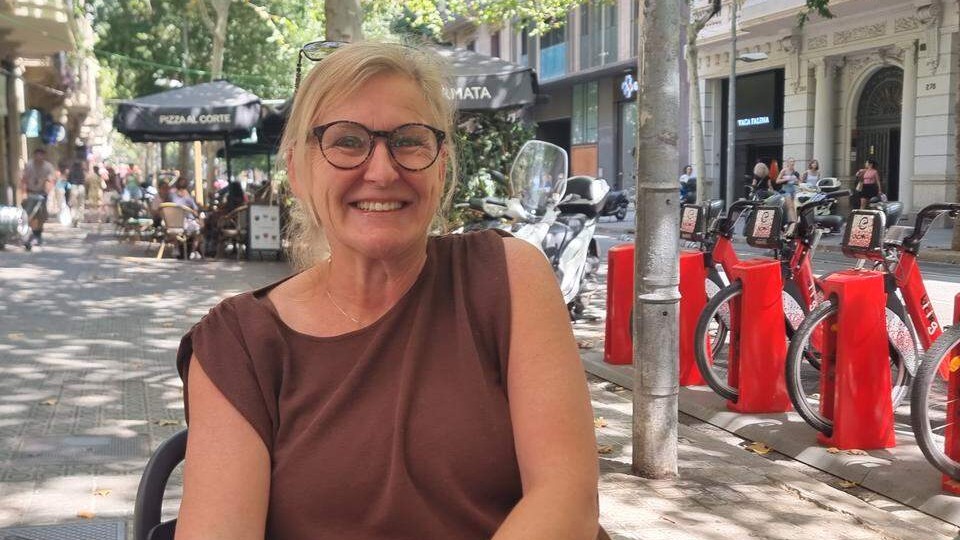This article is originally published in a national Dutch newspaper: De Telegraaf. All rights and copyright belong to De Telegraaf.
BARCELONA – It is a dream for many Dutch people: owning a house in Spain. Sonja Meijerink from Nootdorp bought her dream villa in Platja d’Aro on the Costa Brava two years ago – complete with swimming pool. Amsterdam real estate lawyer Thijs van Zijl is in the process of purchasing an apartment in Barcelona. How did they make it happen? “It is wonderful to have place of our own here.”

Sonja Meijerink (55) had always been on the lookout for a house abroad but never really took the plunge – until the world came to a standstill during the COVID-19 pandemic.
“My husband John and I realised: we now want a house we can drive to if something like this happens again. I had just sold my IT company in the Netherlands, so we had the means. We wanted a large house on the Costa Brava. Because we have a lot of friends and family. We wanted to be able to invite them. I also wanted the option to rent out the house when we’re not there.”
She was aware that in Spain there is often no clear distinction between buying and selling agents. “That is confusing for a Dutch person. In February 2023, we met someone at a Second Home fair who works as a buying agent in Spain. We sent her a wish list of the type of properties we were looking for, and she added some properties herself.”

“Shortly afterwards, we flew to Spain, and the agent drove us around for five days to view houses. One after another fell through. For example, because they were near highways. I’m quite sensitive to noise, so those were not an option.”
‘Incredible stroke of luck’
The villa in Platja d’Arp that they eventually bought was not even on their list. “It was actually outside our budget. But we heard that the French owners really needed to sell. We managed to buy it for €120,000 under the asking price.” She prefers not to disclose the total purchase amount.
A huge stroke of luck. “With Casa Celestial we are surrounded by birds and wild boars, within walking distance of the beach, and one minute by bike to the local market. We also have nice neighbours.”
Apartment in ‘first love’ Barcelona
Thijs van Zijl (37) is also making his dream come true: last week he placed a bid on an 80-square-meter apartment in Barcelona, which he calls his ‘first love’. He keeps the amount of his offer to himself.
“I spend a lot of free time here and rented an apartment here last year. Although I will continue living in the Netherlands – also because of my work – it seems wonderful to have my own place here.”

He too hired a buyers agent. “Her name came up in a Whatsapp group of Dutch people in Barcelona. The third apartment we visited was the one. It’s located in Eixample: a beautiful, lively, central neighbourhood, reasonably close to the beach, and not as touristy as Las Ramblas. It’s on the eighth floor, with a great view over the city, two bedrooms, and a ten-square-meter rooftop terrace.”
Bidding below asking price
Unlike in the Netherlands, in Spain you can bid below the asking price, Van Zijl notes. “My offer was about ten percent lower. In the end, we met halfway. Very exciting – now we have to get everything properly recorded.”
What’s exciting for him as a real estate lawyer: “In the Netherlands, the notary parks the deposit in a third-party account for safe transfer. I wanted to make that a condition here as well, but the sellers didn’t agree.”
‘Strange, but that’s not how it works in Spain’
So it is now being done the “Spanish way”: the ten percent deposit goes directly to the seller. “It feels strange to me. But yes, that’s how it works in Spain.”
He also warns for the several pitfalls: “On the Dutch platform Funda, the measurements must comply with the NEN standard. That gives you guarantees as a buyer. On Spanish websites like Idealista and Fotocasa, ten square meters can easily be added. The land registry also works differently. You have to be very careful with what you do and don’t agree to.”
‘You need to know what the risks are’
Elles Hooft van Huysduynen, a real estate agent in Spain: “There are indeed more pitfalls here than in the Netherlands. Also when it comes to financing. We point this out to Dutch buyers so that they know in advance what they’re getting into.”
In the ten years she has been working as an agent, she has arranged around 250 purchases for clients across Spain.

“Apartments, luxury holiday villas, ruins, and plots of thirty hectares – you name it. So far, it has always gone well. But as a buyer, you need to inform yourself properly and have the risks explained to you.”
When new clients come to her, she first has a conversation to discuss wishes and possibilities. “If someone already has a property in mind, I check everything out, with the help of a lawyer and an architect. The architect must especially understand ‘urbanismo’ (urban or area planning) – that is very important. Also in a city like Barcelona.”
“For example, there are apartments here with an ‘afectación’: this means the municipality can expropriate your property. That is the case in a neighbourhood near the Sagrada Familia, where the zoning plan was changed. It’s good to be aware of this as a potential buyer.”
‘Phenomenal to have such a place’
Sonja Meijerink rents out her house when she is not there, to cover part of the costs. “It can accommodate ten people. If it’s rented for three or four months a year, we have money again to invest in the house. You shouldn’t count yourself rich though – you spend a lot each month on cleaning and a concierge.”
“And if you want to rent it out, you must accept that you’ll always have some hassle. There are always cutting boards, cushions, and towels missing. But it is phenomenal to have such a place. We never want to leave. In the long run, when we stop working, we would love to stay here for longer periods, for example from January to June. I’m already looking forward to it.”
Zie ook:
What is the difference between a purchasing agent and a selling agent
Looking back at 2025: Another milestone year for Prime Buyers Agency Spain





